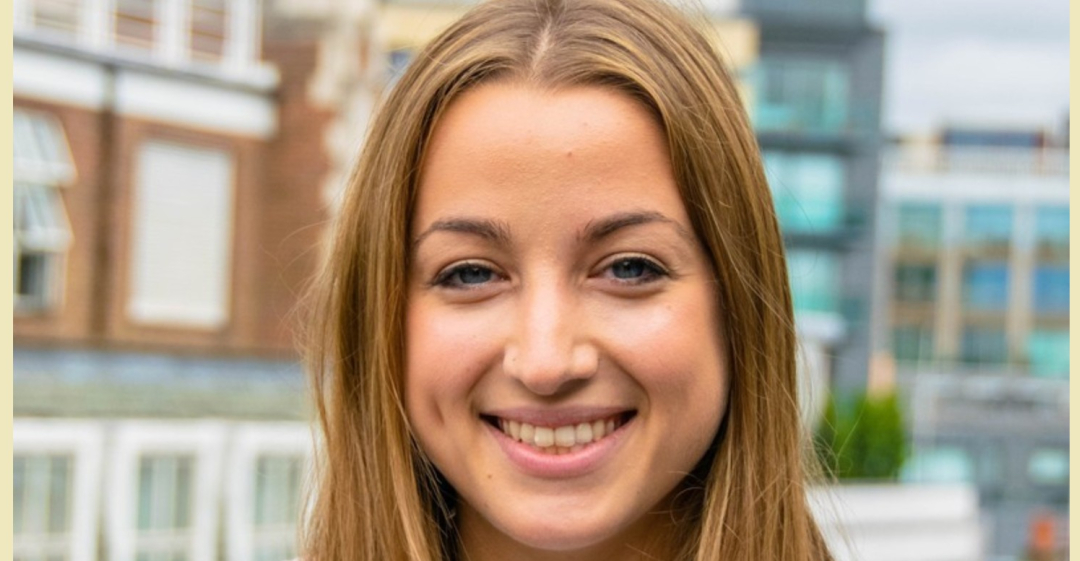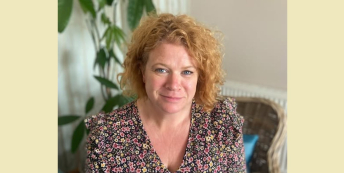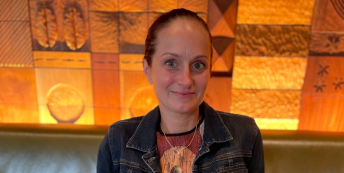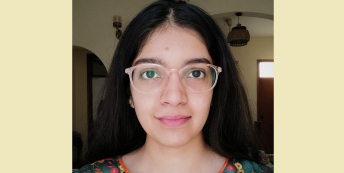“I wanted to do something socially impactful and beneficial with my time.”

What work were you doing previously?
I worked in consulting, on a number of public and private sector projects.
I quite enjoyed consulting because there was lots of breadth to my role. From early on in my career I was collaborating with fairly senior members of different organisations and sectors.
I also got to experience and develop different skill sets, from research to strategy and design.
It was definitely a good baptism of fire and introduction to the workforce for me.
What are you doing now?
I’m a Programme Manager at the Design Council, an independent charity that acts as the UK’s national strategic advisor on design.
I’ve been working on programmes that showcase the value of design in improving outcomes for people and planet.
One such programme is called ‘Shaping Places for Healthier Lives’, which involves supporting local authorities to improve health outcomes in their local areas through a systems change approach.
Why did you change?
I knew from the moment I started my career that I wanted to do something socially impactful and beneficial with my time.
I encouraged myself to do that outside of work through side projects and volunteering. However, it just got to the point where I wanted to be doing more. We spend the majority of our lives working and I really wanted to move into the social impact sector.
I also didn’t feel like I could justify spending the majority of my time on something that was solely profit driven.
Are you happy with the change?
Yes.
What I really appreciate about my role and the Design Council as an organisation is that the organisation takes a systems change (design) approach to its work. For example, the Design Council created the ‘Systemic Design Framework’ which is a design-led approach to changing systems.
I feel very lucky to be working somewhere that not only has a framework for systems design but is also starting to apply it to real life projects.
What do you miss and what don't you miss?
Working in my old career, the private sector, I really took for granted that systems and processes just worked.
Things are set up and structured in a way that enables people to do their job well, which is key. I realised that in order to have an impact on society, the environment and people, an organisation needs to be set up well internally to allow people to do their job efficiently and ultimately have that impact.
I don't miss the constant feeling that I should be working on something more socially impactful. Some of the projects I worked on were impactful in their own right, however when the only goal of a project or organisation was to generate more profit, it just didn’t feel right for me personally.
How did you go about making the shift?
I’d come across On Purpose a year prior to applying to their Associate Programme.
During that year I let the idea of joining the Programme settle while I applied to a few purpose-driven organisations. I had some success in getting interviews with organisations, however the candidates who ended up getting the job primarily had work experience within the sector.
Even though I could showcase my involvement in a number of side projects as well as volunteering, in a competitive market, someone who had already done a similar job in a similar organisation would naturally pip me to the post.
I therefore felt that joining the On Purpose Associate Programme would signal a proof of commitment to potential employers in the impact sector.
When the COVID-19 pandemic hit I, like many others, reflected on the state of the world and how I wanted to spend my life. I decided to take the leap and apply to the programme.
When it came to applying for jobs towards the end of the Programme, I was quite selective and only applied to four positions.
I spent a lot of time cultivating quite personal cover letters that gave more insight into my time on the Programme, what I was looking for and why.
I also very much manifested a break after the Programme. So when interviewing with organisations, I used a confidence I hadn’t had before the Programme and told them that I would be free from that November onwards (rather than late September when the programme ended).
I then found out I got my current job at the end of August and started my role in the November.
What didn't go well? What wrong turns did you take?
I used to have a bit of a chip on my shoulder about being ‘a generalist’.
I found it quite hard to explain my experience to potential employers, for instance, as some of the softer skills that come with being a generalist can be difficult to outline on a CV.
So before joining the Associate Programme, I had a crisis of confidence and wasn’t sure on what I could bring to a role.
How did you handle your finances to make your shift possible?
I had savings to fall back on from my previous job, and also was in the privileged position of having a level of security thanks to my partner.
That helped me to take the plunge.
In terms of managing finances once on the Programme, I created a high-level budget before I started - it broke down all my essential costs like rent, bills, regular payments like contact lenses and other subscriptions, until I was left with a rough estimation of my disposable income each month.
I then broke that into a week-by-week estimate and transferred that amount to my Monzo account each week as my spending money.
It wasn't all an exact science in practice but it helped make me feel in control at least!
What help did you get?
My Programme cohort was amazing and absolutely a place I turned to for support (or support was coming to me!), whether that was via our cohort whatsapp group or meeting with fellow Associates who lived near me.
I also made sure to take the space that I needed to support myself, so taking the time to journal and reflect on my journey.
As an Associate you go through quite a busy year with lots to think about and possibly a little bit of anxiety about what happens after the programme. So supporting myself in what I needed was key.
What would you advise others to do in the same situation?
Remember that your career isn't the only place where you can have a positive impact on the world.
For instance, you can have an impact through volunteering or conversations with family and friends where you may be able to change that one person’s mindset.
However, I’d say if you are looking for a career that aligns with your values, then definitely trust your gut and explore your options, including the Associate Programme of course!
There's also not one linear path and it's ok to squiggle and to see (and present) every experience and job you have as part of your story.
To learn more about the On Purpose Associate Programme, visit https://onpurpose.org/en/associate-programme.
Also, find out more about On Purpose in our Retraining Directory.
What lessons could you take from Rachel's story to use in your own career change? Let us know in the comments below.



